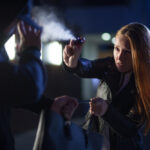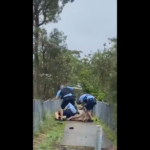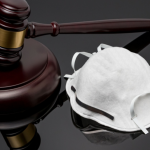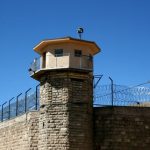The Slow and Painful Death of Sydney’s Kings Cross
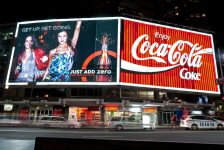
Iconic Kings Cross venue Hugo’s Lounge last week joined an increasingly long list of nightclubs and bars which have shut their doors since the introduction of the state government’s harsh lockout laws.
The venue had served the Kings Cross area for 15 years, and was once frequented by celebrities including Bono, Prince Harry and Elton John – but faced with dwindling patronage and profits, owner Dave Evans had no other choice but to close down.
The lockout laws have featured heavily in the media over the past year and a half, with patrons in the ‘CBD Entertainment Precinct’ restricted from re-entering venues after 1:30 am.
That precinct is substantial – stretching from Surry Hills to the Rocks and from Kings Cross to Cockle Bay.
On top of this, the precinct’s venues are not allowed to serve alcoholic drinks after 3:00 am – with defiant licensees facing fines of $11,000 and/or 12 months imprisonment, as well as ‘strikes.’
There are a range of additional restrictions, which business owners say have had a devastating impact on patronage.
Banning Orders
One of these laws is the power of the Liquor and Gaming Authority to impose ‘banning orders’ on problematic people.
That power is contained under section 78 of the Liquor Act 2007, which says that the secretary of a registered club, the Commissioner of Police, a liquor licensee and any other person ‘prescribed by the regulations’ can make an application to the Liquor and Gaming Authority to ban a person from entering or remaining on the licensed premises.
The law says that a banning order can be made if the Liquor and Gaming Authority:
‘is satisfied that the person the subject of the proposed order has repeatedly been intoxicated, violent, quarrelsome or disorderly on or in the immediate vicinity of licensed premises.’
A person who is the subject of a banning order will be prohibited from entering or remaining within specified licensed premises.
Those who attempt to enter premises after receiving a banning order can be fined up to $5,500.
‘High-Risk Venues’ Subject to Harsher Laws
Venues in the Kings Cross precinct are subject to harsher restrictions under newly introduced provisions.
For instance, section 116AE of the Liquor Act gives the Liquor and Gaming Authority the power to impose long-term banning orders which prohibit certain people from entering or remaining within ‘high risk venues’ in Kings Cross.
Long-term banning orders can last for up to 12 months, and can only be imposed if the Authority is satisfied that the person:
a) Has been charged with, or found guilty of, a serious indictable offence involving violence that was committed in a public place or on relevant premises while the person or any victim of the offence was affected by alcohol;
b) Has been charged with, or found guilty of, a serious indictable offence involving violence that was committed by the person on or in the vicinity of licensed premises and the person was, at the time of the offence:
(i) the licensee or manager of the premises,
(ii) working or performing services of any kind on the premises (whether paid or unpaid) or in a volunteer capacity, being work or services related to the business carried on under the licence, or
c) Has been given 3 temporary banning orders during a period of 12 consecutive months.
Harsher fines of up to $11,000 apply for breach of a long-term banning order.
Under the Liquor Act, a ‘high risk venue’ is any licensed premises which sells alcoholic beverages for consumption on the premises, which are authorised to trade after midnight at least once a week on a regular basis, and which have a patron capacity of more than 120.
This, of course, encompasses a vast number of venues and nightclubs in the Kings Cross area.
A recent media report says that since the laws were introduced, 200 people have been banned from entering ‘high-risk venues’ in the Kings Cross precinct.
On top of this, another 223 have been issued with ‘temporary banning orders’ which prohibit them from entering or remaining within any licensed premises within the precinct for up to 48 hours.
High-risk venues in the Kings Cross precinct are also required to install and use ‘patron ID scanners’; which are expensive devices used to scan photo identification of patrons entering ‘high risk venues.’ Those who refuse to have their ID scanned must be prohibited from entering.
Police Minister Troy Grant says that the measures are aimed at helping police identify offenders in the Kings Cross precinct, and ensure that licensed venues do not admit persons who are subject to banning orders.
He also states that they act as a ‘deterrent for troublemakers’ as they allow authorities to identify offenders in and around venues.
But business owners are upset by the impact of the laws.
Hugo’s owner Dave Evans says that if the lockout laws are truly effective, they should be rolled out across the state instead of simply targeting businesses in the Kings Cross area.
Mr Evans and other Kings Cross business owners have promised to launch a class-action lawsuit seeking compensation for the impact that the restrictions have had on their businesses – evidenced by a 60% drop in trade and an 80% drop in customers to the Kings Cross area.
Hugo’s alone has reportedly suffered a loss of $10 million since the new laws were introduced.
But the government and police remain undeterred, saying that the reduction in alcohol-fuelled violence in the area is directly attributable to the new laws, which are due for review in 2016.


